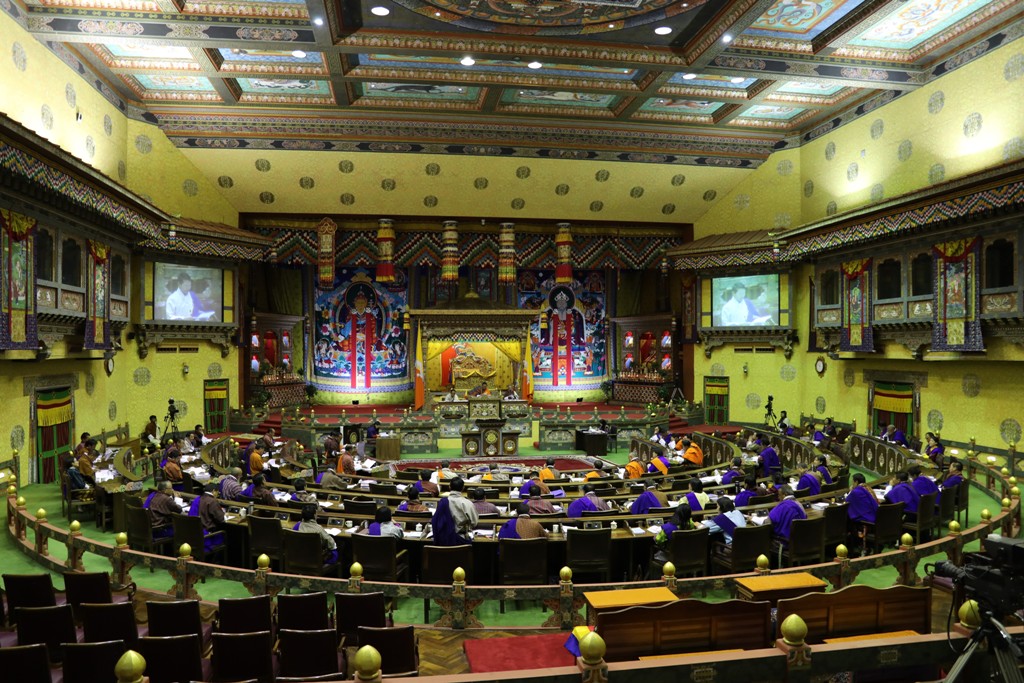
The Gewog Tshogde is in charge of recruiting and appointing Gaydrungs (Gewog clerks) according to the Local Government Rules and Regulations of 2012, and they are responsible for managing the affairs of their respective Gewogs.
Every Gewog should have an Administrative Officer (GAO), Accounts personnel, and Engineer, according to the Local Government (Amendment) Act 2014. The Gaydrungs, on the other hand, are not referenced in the Local Government Act nor recommended in the RCSC’s OD report. In fact, an Organizational Development (OD) exercise conducted by the Royal Civil Service Commission (RCSC) determined that the positions were not required.
There has been significant discussion about Gaydrung’s relevancy, as their roles might be handled by Gewog Administrative Officers and Accounts personnel. On the other hand, LG officials maintain that Gaydrung plays an indispensable role in public service delivery.
As a result of the aforementioned development, there is a discussion about the role of Gaydrung in the Gewog Administration’s functioning. Consequently, in 2019, the Ministry of Home and Cultural Affairs’ Department of Local Governance performed a study to offer evidence on the importance of Gaydrungs in the Gewog Administration’s functioning. The survey included representatives from 6 Dzongkhags, 12 Gewogs, 48 Chiwogs, and 480 households from across the country.
The study recommended that the post of Gaydrung be retained and regularized the Gaydrung post, which is the most viable and feasible solution at the moment. Further, the study recommended that Gaydrung’s post-qualification be fixed at Class 12 with proficiency in Dzongkha and good years of office management training.
However, the Royal Civil Service Commission (RCSC) and the Government decided to discontinue the post of Gaydrung after the recent local Government (LG) elections (April 6, 2022).
On the contrary, the Opposition Party accused the Government of breaching the National Assembly’s resolution, which was passed on January 16, 2019, and its subsequent commitment to Gaydrungs on their retention. Further, the Opposition urged the Government to honour the resolution of the Parliament and re-consideration.
However, the Royal Civil Service Commission shall promote and ensure an independent and apolitical civil service as per Article 26 (1) of the Constitution and shall function in accordance with the Civil Service Act as per Article 26 (10) of the Constitution. Moreover, The BCSR 2018 states that the authority for amendment and interpretation of any provision under the BCSR 2018 shall rest with the RCSC, and its interpretation shall be final and binding.
Therefore, the National Assembly’s resolution passed on January 16, 2019, to ‘Retain the post of Gaydrung under Gewog Administrations’ is inconsistent with the Constitution and shall be considered null and void as per Article 1 (10) of the Constitution. The Constitution is the source of law, and the governmental organs derive their powers from its provisions. They must function within the framework of the Constitution, and their actions must be consistent with the requirements of the Constitution. Moreover, the Parliament’s resolutions, except on legislative bills, international conventions and protocols, are not necessarily binding.
The following points are proposed for the Government’s kind consideration:
- The Government may consider amending the Local Government Act of Bhutan 2014 if the Department of Local Government’s (DLG) recommendation on the significance of Gaydrung in Gewog Administrations in 2019 is legitimate and urgent. However, a comprehensive review needs to be carried out by an independent institution to avoid a conflict of interest. Moreover, the previous study had limited sampling sizes of 6 Dzongkhags, 12 Gewogs and 48 Chiwogs only.
- If the Government is concerned about the capacity of local Government, it is strongly recommended that Section 265 of the Local Government (Amendment) Act 2014 be implemented, which mandates that every Gewog have an Administrative Officer (GAO), Accounts personnel, and an Engineer. This will strengthen the capacity of the LG functionaries and improve the efficiency of the public service delivery.
- Given the increased responsibility and budget at the local level, there is a need for a qualification requirement for local leaders. The present Government must demonstrate a strong political commitment to building the capability of our future LG leaders. The Gyaldrung job may become obsolete if all LG has a minimum qualification. Therefore, the Government may consider amending the Local Government Act of Bhutan 2014 to establish qualification requirements for LG leaders.
Last but not least, I applaud the Government’s recent decision to provide Gaydrungs with the special retirement scheme—a one-year basic salary starting from April this year and leave travel concession (LTC) and leave encashment in recognition of their dedicated service to the country as per the Pay Revision Act of 2019.
Disclaimer: The views and opinions expressed in this article are those of the author and do not necessarily reflect the official position of the affiliated organization.
Recent Blogs
- The Government cannot continue to be a party to UNCAC until Legal Anomaly is resolved July 8th, 2022
- Concerns on the fuel price hike March 17th, 2022
- Effective Civil Service Reform in Bhutan November 25th, 2021
- Why didn’t I support the Tobacco Control (Amendment) Bill of Bhutan 2021? July 5th, 2021
- Question to Minister of MoAF on Cordyceps Collection Issues May 29th, 2021
Browse Category
- Gasa Issues (11)
- National Issues (14)
- Personal (3)
- Perspectives (7)
- Speeches (2)


